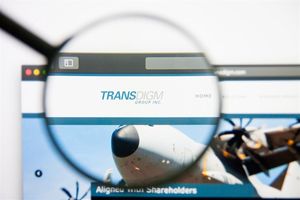Drivers beware. The 80,000-pound tractor trailer sharing the road with you may not have a driver behind the wheel. One major company has just announced it will be sending autonomous trucks to terminals in Dallas and Houston sometime next year. The announcement comes shortly after the California Department of Motor Vehicles shut down problem-plagued Cruise autonomous taxis in San Francisco, saying the vehicles, involved in several troubling incidents, presented an “unreasonable risk to the public.”
“We have already seen numerous instances in Texas of problems with driverless vehicles,” warns Amy Witherite, founder of a law firm that specializes in vehicle accident cases. “The danger and severity of accidents will be multiplied a hundredfold when the accident involves a tractor trailer versus a car.”
The City of Austin has received more than 40 complaints related to driverless cars since July, according to city data. According to media reports, an internal reporting system used by Austin firefighters and police describes Cruise cars bumping into parked fire trucks, ignoring police directing traffic, and—in one instance—almost cutting off an ambulance with its emergency lights activated.
“Individuals injured in a crash with an autonomous vehicle will face a much more difficult time determining who was at fault and will be responsible for deaths, serious injuries or property damage,” said Witherite. “The amount of finger-pointing between various parties will increase tenfold because of all the technology involved.
“Anyone who has ever experienced the so-called blue screen of death on their computer understands that computers, which control autonomous vehicles, can fail,” said Witherite. “Even something as simple as placing a sticker on a sign can confuse sensors, and there has been a high-profile case where an autonomous vehicle did not recognize a giant tractor trailer truck crossing a highway, leading to a fatality.
“Any litigation that arises from this type of accident will require a new level of expertise from attorneys and a wide range of experts in computers, software, sensors and all of the other technology that goes into creating an autonomous vehicle,” says Witherite. “We can expect defendants to claim their technology is proprietary or seek confidential settlements that will make it more difficult for plaintiffs to access key information needed to determine liability. We have already seen attempts in Congress to limit the amount of information that is available through binding confidential arbitration in these types of cases.”
In 2017, Texas passed Senate Bill 2205, which explicitly allows for the operation of an automated motor vehicle on Texas roads, regardless of whether a licensed human operator is physically present in the vehicle. The bill assigns exclusive governance to the Department of Public Safety and explicitly preempts other political subdivisions or agencies from regulating the operation of automated motor vehicles.
According to Texas A&M University Transportation Policy Research Center, “this law offers clarity in some very important areas and effectively allows for the legal operation of AVs in Texas. However, these vehicles present a number of new legal and procedural questions still not covered by current law, including questions of governance, data ownership, protection of data concerning individual privacy, and the ability of AVs to comply with human-centric Rules of the Road.”
“There is clear evidence this technology has not been perfected,” says Witherite, “and innocent drivers and passengers may well pay the price.”
View source version on businesswire.com: https://www.businesswire.com/news/home/20231114113151/en/
Contacts
The Margulies Communications Group
214-368-0909
mediainquiries@prexperts.net






